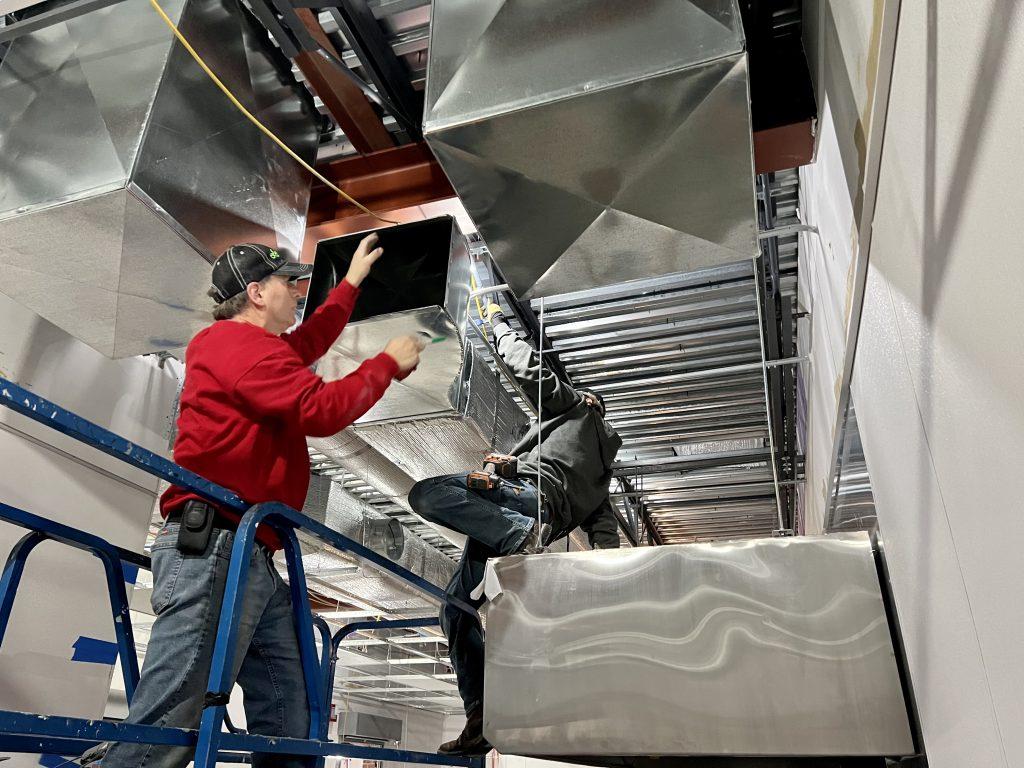When it comes to commercial and residential HVAC systems, design matters. HVAC design for commercial buildings matter because the design work impacts items such as, but not limited to, the energy consumption that your air conditioner and heater will use, the heater ventilation, and the air conditioners functionality. If an HVAC system is designed well that will be reflected in the HVAC system’s performance, energy efficiency, and longevity.
Before installing a new HVAC system or upgrading your current HVAC system, be sure that an HVAC professional has reviewed the reports and design plans prior to installation to be confident that the HVAC design will function as it should in your particular building.
Benefits of Good HVAC Design
Professional engineers and HVAC professionals will often work together to create an HVAC design that will result in the best conditions for a high performing HVAC system that is energy efficient. Below we cover several key factors that should be considered during the HVAC design process for commercial heating and air conditioning systems. The advantages of proper planning cannot be overstated.
1. Equipment Selection
Typically the first step in the HVAC design process is selection of the HVAC equipment that is best suited for the layout of the particular building and the needs of those who will be working in the building. It’s true that all heating and cooling systems have similar functions, but how a specific air conditioner and heating system regulates air flow and temperature varies from system to system.
2. Load Calculations, Air Delivery, and Other Factors
After an HVAC system has been selected, the next step is calculating load and air delivery requirements. The load calculations help HVAC professionals determine the heating and cooling needs of the building. An experienced HVAC professional will consider factors such as building materials (e.g., insulation), windows and doors, square footage, the activities that will be performed within the building, and weather conditions.
3. HVAC Equipment Distribution
During the HVAC design process, it’s important that the placement of thermostats, vents, and other components of the HVAC system are methodically and logically considered. For example, air distribution patterns and air vent placement significantly impacts the airflow in a space. Additionally, when an entire HVAC system has proper placement, an HVAC system will be able to heat and cool a space using less energy which results in energy efficiency and cost savings.
4. Optimal Duct Routing
Ducts are an important part of many commercial and residential HVAC systems. In most systems, ductwork is necessary for warm and cool air to travel throughout a space. Generally, the most efficient HVAC systems have ductwork with very few bends and proper clearances. Well-designed HVAC plans will take care that ductwork is properly laid out, that air flows are balanced, and that the space will have consistent heating and cooling airflow with correct air pressure.

Risks of Bad Commercial HVAC Design
Your efforts to carefully plan and consult with industry experts for HVAC design will not be wasted. Failure to carefully plan and consult with experts could result in needing significant and costly repairs. For example, poor planning and design could result in:
- Reduced HVAC airflow that doesn’t meet the needs of all the rooms within your space;
- Ductwork that doesn’t allow air to flow properly, improperly sealed, or allows for polluted air to enter the system;
- HVAC system having a reduced ability or inability to deliver warm and cool air due to air pressure controls;
- Large temperature swings from room-to-room in the space;
- HVAC system that will likely not meet or exceed its life expectancy;
- An inefficient HVAC system that will likely cost you more in energy bills;
- Reduced comfort;
- And, more.
Finding the Right Commercial HVAC Company
Larry Cook Heating and Cooling provides reliable and professional HVAC services for commercial customers, small and large businesses alike, as well as residential HVAC solutions. In the Wichita, Kansas metro area, there aren’t many HVAC companies like Larry Cook Heating and Cooling that are familiar with the commercial HVAC requirements. This is because Larry Cook also owns and operates Larry Cook Construction, LLC, a company that specializes in commercial construction.
We understand the importance of commercial HVAC design and the significant impact it has on efficiency and comfort for our customers. If you’re planning to install, upgrade, or service your commercial HVAC equipment, contact Larry Cook Heating and Cooling to see how we can help. We offer free no-obligation estimates – just call us at (316) 322-5668 to schedule.




